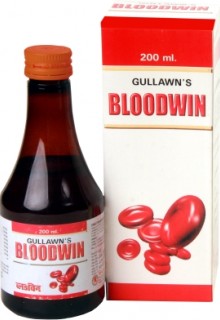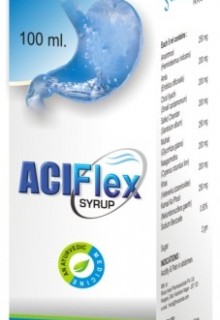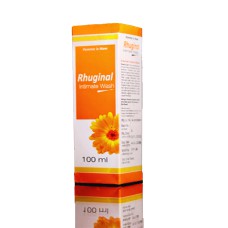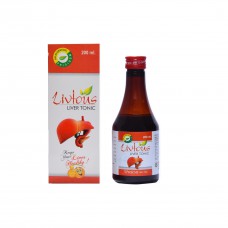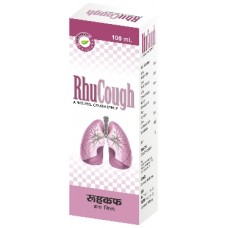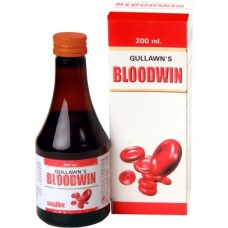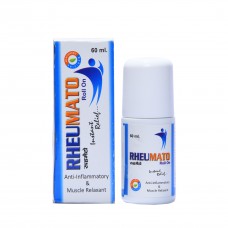RHUGINAL (WHO certified)
Introduction -
Rhuginal is a unique blend of natural ingredients developed for Rejuvenation & Tightening of vagina With its antiseptic and lubrication properties.
Rhuginal is tested on sensitive skin under dermatological condition and such as safe for intra-vaginal use. It works towards providing the most effective rejuvenation process
BENEFITS
- · Firms and tightens naturally
- · Delays aging restores natural
lubrication
- · Treats flaccid & loose
- · Antibacterial &
Anti-fungal
- Rhuginal Intimate wash has a
balanced pH to relieve irritation and also neutralize the effluence of
microbial colony in controlled acidic environment
The soft formula with hydrating
and nutritive properties gives a soothing feel with mild fragrance to give that
feel fresh feeling in the
under-garment regions all day
long
Features:
· Longer shelf life
· No side effects
·
Effectiveness
Each 5 ml Contains
| Common Name | Botanical Name | Quantity |
| Ghritkumari | Myrica Negi | 2 % w/w |
| Neem | Zingiber officinale | 2 % w/w |
| Triphala | Vanda roxburghii | 2 % w/w |
| Lodhra | Curcuma longa | 2 % w/w |
| Marigold | Curcuma aromatica | 0.5 % w/w |
| Shudh Fitkari | Celastrus Peniculatus | 1 % w/w |
Vaginitis
Cervicitis
Vaginal Atrophy
Leucorrhoea
Urinary Tract Infections (UTI)
Post Operative Vaginal Infections
Wash your hand and wet external vaginal area then pour 2-3 drops of Femme on the Vaginal area and Rinse throughly
Femme Wash (Product Code – FME004)
|
Indication |
Vitiated Dosha |
Aushadh Dravya Pacifying Dosha |
Panchbhautik Composition Of Aushadh Dravya |
Rasa Of Aushadh Dravya |
|
Vaginitis |
Pitta |
Neem, Harad, Baheda, Lodhra, Marigold |
Prithvi + Vayu |
Kashya |
|
Cervicitis |
Pitta |
Neem, Harad, Baheda, Lodhra, Marigold
|
Prithvi + Vayu |
Kashya |
|
Leucorrhoea |
Kapha |
Ghrit kumari, Amla, Lodhra, Marigold, Harad |
Agni+ Vayu+ Aaksah+ Prithvi
|
Katu + Kashya |
|
Maintain ph |
Kapha Pitta |
Ghrit kumari, Lodhra, |
Prithvi + Agni+ Vayu |
Katu + kashya |
|
Vaginal atrophy
|
Vata pitta |
Neem, Lodhra, Marigold
|
Vayu + Aakash |
Kashya+ Tikta |
|
Urinary Tract Infection |
Pitta |
Neem, Harad, Baheda, Lodhra, Marigold |
Prithvi + Vayu |
Kashya |
Vaginitis is the inflammatory disease of vagina due to Pitta dosha. Symptoms include unsual vaginal discharge, itching .Causative factors are intake of Pitta pradhan diet which increase the Pitta Dosha and aggravate the Teja(Agni) Mahabhuta ,the aggravated Teja Mahabhuta leads to increase in ushanata in rakta dhatu,the body in order to combat excess heat increase the liquidity in blood resulting to unsual vaginal discharge
Aushadh Dravya in Femme wash (Neem, Harad, Baheda, Lodhra, Marigold) which is made up of Prithvi and Vayu Mahabhuta having Kashya (astringent) rasa decrease the excess of Teja and Aap Mahabhuta and help in maintaing the holing capacity
Cervicitis is the inflammatory disease of cervix having symptoms like discharge, itching, rashes and pain it is also due to consumption of Pitta pradhan aahar dravya which aggravate the Teja Mahabhuta, that increase the liquidilty in blood thereby increasing the aap guna so Aushadh Dravya in Femme wash (Neem, Harad, Baheda, Lodhra, Marigold) having Prithvi, Vayu and Aakash Mahabhuta pradhan is useful to control excessive discharge and to pacify the Pitta..
Leucorrhoea is due to excessive consumption of Pitta pradhan aahar which increase the Sara guna of Pitta ,so to pacify the Pitta Dosha, Aushad Dravya in Femme wash(Neem,Harad, Baheda,LodhraGhrit kumari ,Marigold) having tikta ,kashya rasa pradhan is useful .kashya rasa( Prithvi and Vayu Mahabhuta pradhana)increase the holding capacity and decrease the liquidity and sara guna of Pitta Dosha in short tikta and kashya rasa have all Mahabhuta essentials to control liquidity
Vaginal atrophy is the inflammation of vagina due to thining and shrinking of the tissue as well as lack of lubrication,there is decrease in the properties of Aap(Jal) Mahabhuta and increase in Teja(Agni) Mahabhuta ,Teja mahabhuta absorb the Aap Mahabhuta so dravya guna of aap is reduced due to excess ushanata of Teja Mahabhuta which increase dryness in the area and vitiate the Vata ,so to pacify the pitta rasa( Prithvi ,Vayu an Aakash Mahabhuta) Ghrit kumari (having katu rasa but tikta vipaka and snigdha and pichchil guna) is helpful in increasing lubrication and removing dryness in vagina.
Urinary tract infection
Urinary tract infection occurs due to excess consumption of Pitta vardhak aahara which cause inflammation of area and cause redness, itching, pain and uncontrolled micturation so dravya having Pitta shamak in nature is helpful to pacify the Pitta Dosha .Aushadh dravya (Neem, Lodhra, Marigold, Harad,Baheda) having tikta and kashya rasa is useful to pacify the Pitta and increase the holding capacity .
Post operative vaginal infection
After surgical procedure ,there is increase blood flow to that area which increase the ushanatava and saratav guna of Pitta Dosha,in order to decrease the ushanatav and saratva guna of Pitta, Aushadh dravya (having tikta and kashya rasa composed of Prithvi ,Jala,Vayu and Aakash Mahabhuta dominant are helpful ,these herbs quickly dried up the wound and helps in healing and decrease oozing and redness of the wound .
Ph Balance
Normal pH of vagina is acidic in nature which prevent the growth of infections ,due to kapha vardhak aahar,and various unhygienic conditions, ph of vagina is disturbed as a result of bacterial fungal infections which creates bad odor and discharges this leads to decreased pitta which increase ph ,there is a pre dominance of Aap Mahabhuta, Aushadh Dravya (Aloe vera) Agni Mahabhuta pradhan having katu rasa , dissolves Aap Mahabhuta help to maintain ph by increasing pitta ,it also help to fight against infection Moreover due to snigdha property,it prevents dryness and itchiness,providing optimal lubrication also Aushadh Dravya( lodhra )having kashya rasa help to maintain Aap Mahabhuta balancing appropriate pH of vagina
Yoga Asanas For Femme
- Sarvangasana
- Mathsyasana And Or Supta Bajrasana
- Pabanmuktasana
- Bhujangasana
- Salabhasana
- Padahesthasana
- Garbhasana
- Sirsasana
- Uthitapadasana
- Utkatasana
- Padmasana
- Janu Shirshasana
- Paschimottanasana
- Sarvangasana
- Halasana

